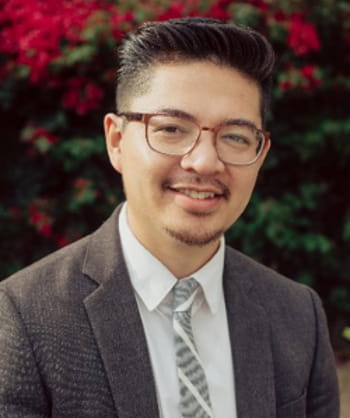Week 4 Reflection

JOHN REYES, ED.D.
DIRECTOR OF RESEARCH, PROGRAM EVALUATION, AND INNOVATION
ROCHE CENTER FOR CATHOLIC EDUCATION
One of the first times I remember having to apologize to a student – as in, more so than a quick “sorry” or “my bad” – was after a writing class I taught to my then-8th grade homeroom class. I made the mistake of using a student’s writing sample as a way to model the editing and proofreading process without clearly thinking through the implications of what that would be like for that student amongst her peers, and it ended up being a deeply humiliating moment for her.
I’m almost certain I made plenty of mistakes as a 20-something-year-old junior high teacher, but this particular one stands out in my mind as an especially formative one. I remember both apologizing to her and to her parents, all of whom were understandably upset but incredibly gracious in accepting and forgiving. I can recall the firm, but gentle conversation I had with my principal in the wake of all of it, who clearly knew I would not be making THAT mistake again.
I mention this because in this week’s podcast, Maddie Jarrett talks about students as being “mediators of the mystery” – this profound idea that because students, like all of us, are made in the image and likeness of God, play this instrumental part in God’s unfolding of who he is to us as educators. Within the context of our study of identity and belonging in Catholic schools, this means that our students’ identities and the ways in which they are defined and developed and expressed have something to teach us about the mysteries of our faith. For me, at least, it evokes a certain kind of humility – that in the midst of unit planning and grading and classroom management there is this beautiful exchange that makes the encounter of God’s presence not only possible but instrumental to my own journey of faith.
We talk quite a bit in education, Catholic or otherwise, about the idea of student-centered learning and framing teaching and learning through the eyes and the perspective of the student. Certainly, high-quality instructional strategies, effectively implemented assessment practices, and a rich curriculum all support this. For me at least, I remember walking away from that moment with an expanded understanding of what “student-centered learning” was about. Within that fabric is a sense of surrender and trust that students place in us when they embed themselves, either in paragraphs or in fragments, in the ways in which they engage in the learning process. I’m convinced that the Catholic school teacher is formed in a deeply personal and profound way by how they steward and cultivate what is given, and that the spiritual and holistic formation of students themselves are transformed by their experiences and perceptions of how effectively we are stewards of the gift of who students are.
As our book study starts to reach its conclusion, let us be reminded of St Irenaeus’s words that “the glory of God is man fully alive.” The work of identity and belonging in Catholic schools is very much this unfolding of the sense of life and life in its abundance as we hear in John 10; and truly I believe that there are so many possibilities as to how we brings this to life in our classrooms and our communities.
– JR